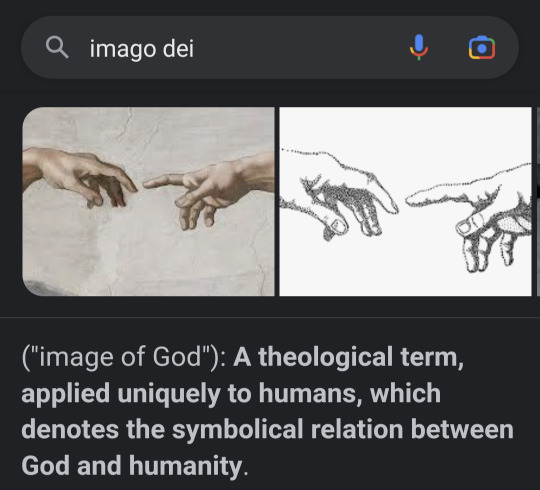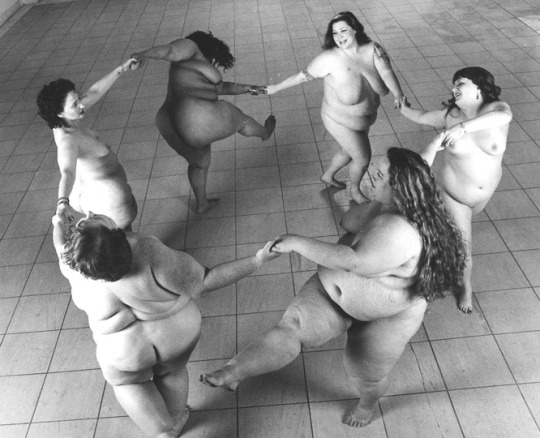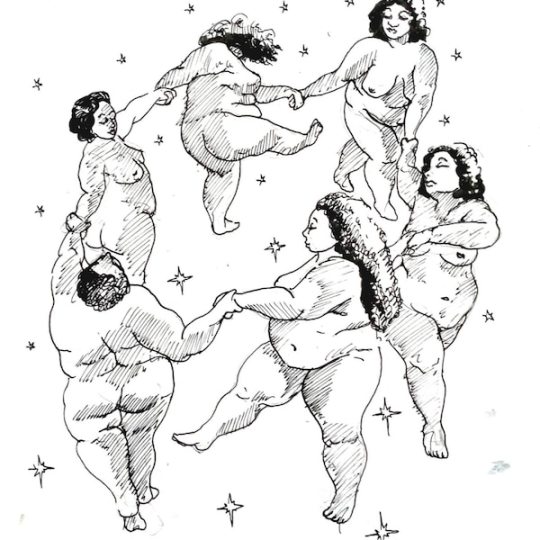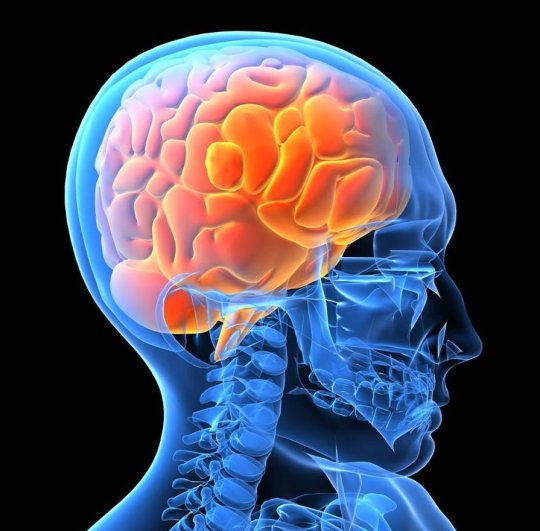#Imago Dei
Text





Genesis 1:27 | Winter: Will, The Arcadian Wild | Mark 12:15-17 | How to Be Yours, Chris Renzema
545 notes
·
View notes
Text
The Image of God and our Imagination
Just as imagination can fuel fear, so can imagination fuel faith. After all, God created us with imaginations to use for His purpose.

The Word of God, the Bible, says that without faith it is impossible to please God. As an extension to this, without imagination, it is virtually impossible to have faith. How else are we going to see what we are believing for, before we ever see it in actuality? Hebrews 11:1 says, “Now faith is the substance of things hoped for, the evidence of things not seen.”
So how did God create the universe and all that is in it from nothing? Hebrews 11:3 says, “By faith we understand that the worlds were framed by the word of God, so that the things which are seen were not made of things which are visible.” God exercised his imagination! He first saw the worlds, and then He spoke them into being!
God created man in his own image, endowing us with the same ability to create. Hebrews 11, the whole chapter, speaks of the faith of the patriarchs and the exploits that were done by faith, many never physically seeing all they believed God for this side of eternity.
The Latin term ‘Imago Dei’ refers to man being created in the Image of God, in all His creativity and attributes. I have attached a link to an article below expanding on the concept of Imago Dei.
God created the first man, Adam, in His own image. God later took the first woman, Eve, out of Adams side. Adam was like God in every way. He had full authority in the paradise that was the earth at that time, known as the Garden of Eden. Adam was also given the task of naming all the animals, an amazing feat of imagination! He walked and talked with God in the cool of the day.
The only thing Adam was not given authority over was the Tree of the Knowledge of Good and Evil, which God had instructed that he must not eat from, for the day that he did so, he would surely die.
When the fateful day came that Satan, embodied in the serpent, tempted Eve to eat from the forbidden tree, she shared the fruit with Adam. Death did indeed come, but not in the way you might expect.
Adam and Eve had been created to live forever in God’s presence, having constant fellowship with him in Eden. In fact, nothing ever died there until Adam disobeyed God’s express instructions to enjoy the garden, eating of any and all of the amazing produce of the land except the fruit of that one tree. Even the animals were all herbivores. Only after what became known as ‘The Fall’ did animals begin killing each other for food.
The first death after The Fall was not a physical death, but the spiritual death of Adam and Eve, a curse that would eventually lead to their physical deaths, and the deaths of all of their descendants.
The second death was when God killed an innocent lamb to provide clothing for Adam and Eve. Their sin of disobedience had opened their eyes to their nakedness, and they were ashamed. Prior to The Fall, they had been naked and unashamed.
God put Adam and Eve out of the garden because, had they eaten from The Tree of Life in their fallen state, they would have lived forever, never again having any hope of restoration of that pure relationship with God they had once enjoyed.
Fast-forward four thousand years. Jesus (the new Adam), conceived by a virgin through the Holy Spirit of God, came to the earth as a perfect man, just as the original Adam had been. His sole purpose was to point mankind back to God and dying as a perfect sacrifice for sin, the very thing that had broken the relationship between Adam and God in the garden.
For millennia between the Garden of Eden and the Cross of Calvary, mankind has, under special circumstances and in rare cases as detailed throughout the Old Testament of the Bible, been endowed with the ability to walk close to God, but there was always a separation.
But now Jesus has died and risen from the dead, conquering death forever. He has sent the promised Holy Spirit to those who will receive his gift of eternal life. As John 3:16-17 says, “For God so loved the world that he gave his one and only Son, that whoever believes in him shall not perish but have eternal life. For God did not send his Son into the world to condemn the world, but to save the world through him.”
In John 14:16-18, Jesus himself promises the Holy Spirit to those who will follow Him. “If you love Me, keep My commandments. And I will pray the Father, and He will give you another Helper, that He may abide with you forever— the Spirit of truth, whom the world cannot receive, because it neither sees Him nor knows Him; but you know Him, for He dwells with you and will be in you. I will not leave you orphans; I will come to you.”
Once we have received salvation from sin in Jesus and the promised Holy Spirit has been given to us, our spirit is restored to the Creators original design and we can begin the journey of relationship with Him, just as if we had never sinned. All the power, authority, wisdom and imagination that created the universe and raised Jesus from the dead has come to live in us. Just as Adam of old, we are restored to once again partake and partner in all the creativity and attributes of sons and daughters of the Creator God.
#freedom#hope#power for healing#live free#great marriages still happen#freedom in christ#hope shines#created in His image#imagination#imago dei
804 notes
·
View notes
Text
When we walk past an indigent person without even a nod of recognition, we deny the existence of God in that person. When we pretend that he or she is invisible, we blind ourselves to that person's inner light and its connection to our own.
Robert Lawrence Smith (A Quaker Book of Wisdom: Life Lessons in Simplicity, Service, and Common Sense, page 103)
269 notes
·
View notes
Text



#henry matisse#leonard nimoy#spitblossoms#paint#photography#ink#the full body project#la danse#the dance#twinkle toes#joy#divine bodies#beautiful bodies#imago dei#i love
25 notes
·
View notes
Text
One of my favorite things is to look at stories from a Christian perspective. I am a firm believer that all good stories, intentionally or unintentionally, reflect truth because of the Imago Dei and because God's truth is inescapably... true.
I was praying the other day about something heavy on my heart and realized that I not only needed to keep praying, but I also needed to act. Christianity is almost always two things that seem paradoxical. Waiting on God, trusting God isn't waiting on your hands. It's an active waiting and trusting.
And you know what a good visual is for that truth? A great little moment of faith made sight?
Stargate Atlantis.
Every time the Team is captured, which is quite often, they know their people are coming for them, but they also try to escape. Their knowledge and faith in their people never means they don't go to work to free themselves.
This is true every day for the believer. We trust and work. This is true in our fight against sin, doubt, and despair. Trust and work. This is Justification and Sanctification hand in hand.
Good stories let us practice being brave before we have to be.
Next time, I'm tempted by sin—every moment of every day—I can remember to trust the Spirit's sanctifying work while also fleeing. Staying in the fight, but never fighting alone, dying but never dying alone.

So, for just a moment, my faith was made sight, and I was gifted by the Lord with some fortification by a good story.
@mournerofcrows @dangerously-human
#stargate atlantis#the team#sga#stories let us practice being brave before we have to be#christianity#fortitude#never out of the fight#justification#sanctification#reformed baptist#Imago Dei
22 notes
·
View notes
Text

20 notes
·
View notes
Text
As the Canadian Evangelical magazine Faith Today writes, paraphrasing the physician and professor Dr. Margaret Cottle: “It is not undignified to be cared for. …If we believe every person is created in God’s image, then they deserve such care.” That is, dependence, requiring the assistance of others to live one’s life, does not do anything to detract from one’s basic humanity.
From Where Are the Churches in Canada's Euthanasia Experiment? by the Rev'd Benjamin Crosby
2 notes
·
View notes
Quote
Because you bear God's image, you are guaranteed a path to meaningful work. The image of God dignifies all work that brings flourishing in God's world, however that might look. One Old Testament scholar says that the Image of God label was sometimes used of a king or of the royal descendants, as rulers who stand in for the gods - but Genesis takes this familiar concept that was always reserved for the highest of the high, and makes a radical claim that this status belongs to everybody; every human is made in the image of God. You would never have said that in the ancient world. The term wasn't applied to a canal digger, or to the mason who worked on the ziggurat. Genesis is saying that every human, no matter what they're doing, bears His image and has a royal role to play in His world. You play that role wherever you bring order or flourishing to the world around you.
Matt McCullough, from the sermon “In His Image: Purpose”
23 notes
·
View notes
Text
Animals in this life and the next
Proverbs 12:10
A righteous man has regard for the life of his animal,
But even the compassion of the wicked is cruel.
Both humans and animals have the breath of life in them, and although animals aren't created in His image as we are (Genesis 1:27)—and therefore have no souls, hence making humans infinitely more important than animals—we must remember they still have the breath of life in them (Genesis 7:15).
When it comes to the physical body, Ecclesiastes 3:19 is a perfect illustration of the life and death commonly shared among humans and animals, for it tells us: "For the fate of the sons of men and the fate of beasts is the same. As one dies so dies the other; indeed, they all have the same breath and there is no advantage for man over beast, for all is vanity." Death, which was introduced into the world after Adam's disobedience (Romans 5:12), is common to man and beast alike.
Interesting to note that Adam was surrounded by animals before Eve ever came along, and yet God says “It is not good for the man to be alone; I will make him a helper suitable for him” (Genesis 2:18). All those animals weren’t of any help to him, nor did they keep him from being alone. No animal can ever replace a human being.
In Adam’s day, there was no enmity between man and beast, and a time will come when all the enmity between all living beings will be gone too. As Isaiah 11:6-8 tells us: “the wolf will dwell with the lamb, And the leopard will lie down with the young goat, And the calf and the young lion and the fatling together… Also the cow and the bear will graze, Their young will lie down together, And the lion will eat straw like the ox. The nursing child will play by the hole of the cobra, And the weaned child will put his hand on the viper’s den.”
Another interesting point to note is how the so-called "compassion" of the ungodly is actually cruel. The compassion of the ungodly is often used as a means to exploit. As noted by 18th-century theologian, Adam Clarke: “The wicked, influenced by Satan, can show no other disposition than what is in their master. If they appear at any time merciful, it is a cloak which they use to cover purposes of cruelty. To accomplish its end, iniquity will assume any garb, speak mercifully, extol benevolence, sometimes even give to the poor!"
Let the righteous person be righteous in all their dealings, rather than use their apparent righteousness as a means to gain favor or exploit—which is cruel.
We must care for the well-being of animals, who have been made by God as we have, and not mistreat them. It’s not wrong to eat them, as God Himself allowed for the consumption of their meat after the Great Flood (Genesis 9:3), but we must not be cruel to them, even as we take their lives — a point further reinforced by the Jerusalem council (Acts 15).
Ultimately, we just don’t know what kind of animals are present there but I bet there will be many familiar faces, along with some that are very different from what we have here.
#animals#Adam Clarke#exploitation#righteousness#compassion#cruelty#animal cruelty#merciful#Bible study#Bible notes#theology#benevolence#enmity#Adam and Eve#Garden of Eden#church#Christianity#faith#religion#Imago Dei
13 notes
·
View notes
Text
Dignity
“Our societies and communities have a way of grinding up and serving out dignity in portions based on our own human ideals and idols. In the history of the white Western world, you can trace a perversion of dignity in the name of usefulness. You are no longer the image of God, you are currency.
We cannot help but entwine our concept of dignity with how much a person can do. The sick, the elderly, the disabled, the neurodivergent, my sweet cousin on the autism spectrum—we tend to assign a lesser social value to those whose "doing" cannot be enslaved into a given output.” —Cole Arthur Riley
#life#dignity#value#white#western#image of god#imago dei#sick#elderly#disabled#neurodivegent#doing#being#enslaved#cole arthur riley#black thought
2 notes
·
View notes
Quote
We were created continuously outpouring. Note that I did not say we were created to be continuous outpourers. Nor can I dare imply that we were created to worship. This would suggest that God is an incomplete person whose need for something outside himself (worship) completes his sense of himself. It might not even be safe to say that we were created for worship, because the inference can be drawn that worship is a capacity that can be separated out and eventually relegated to one of several categories of being. I believe it is strategically important, therefore, to say that we were created continuously outpouring - we were created in that condition, at that instant, imago Dei. We did not graduate into being in the image of God; we were, by divine fiat, already in the image of God at the instant the Spirit breathed into our dust. Hence we were created continuously outpouring.
Harold Best, Unceasing Worship (2003).
2 notes
·
View notes
Text
"It is beautiful to watch people lean into the reality that they are (or at least consider that they are) the Imago Dei; image bearers of God. Even with failure, even with imperfection, and even with pain...they are beautifully crafted to reflect the likeness of their maker. Each and every one of us carry this around with us. " ~Aundi Kolber-
2 notes
·
View notes
Photo

Mankind’s intellectual abilities reflect his status as the crown of God’s creation. It is the imago Dei (image of God) that distinguishes mankind from the animals, and it is this same image that makes the life of the mind important. Only human beings pursue, discover, and reflect upon the truths of logic, mathematics, science, technology, philosophy, morality, the arts, and a religious worldview. Human beings alone are time, truth, and reality conscious. Only humans recollect the past, recognize the present, anticipate the future, and can philosophize about them.
~ Samples, Kenneth Richard. ‘Without a Doubt: Answering the 20 Toughest Faith Questions. p. 256
1 note
·
View note
Text
The Person You Love Least: Jesus Christ
How often we think that but for this or that person in our lives we should be saints! That troublesome person in the office, that exasperating fellow lodger; that spiteful old relative who is on our back like the old man of the sea! They are our stumbling blocks. Why is it allowed? Why is it that we cannot get away from them?
It is because Christ wishes to be with them and has chosen us to take Him to them. He loves them, He sees the depths of their loneliness. He has plumbed it with His love. Moreover, He approaches us in them. They bring Him to us in just that aspect that He wishes to be known to us. His presence in them may save us from some particular sin. They may be, to us, Christ forgiving, Christ in his patience, Christ teaching. They may be Christ in His weariness, or Christ in His fear in Gethsemane. Christ facing His death. They may come dependent and helpless as Christ in His childhood or infancy. They may come as Christ in that particular need of His to which our response means our salvation. Possibly the neglected Christ in the Tabernacle to whom we have made such fervent promises of reparation, such acts of self-dedication, still awaits our rudimentary courtesy, unrecognized, unloved, and lonely under our own roof.
- Caryll Houselander (The Passion of the Infant Christ, pages 92-93). Italics original, bolded emphases added.
30 notes
·
View notes
Text
Yellow
I think I was supposed to be unapologetically loud. I would not go as far as extroverted, but I remember when I was my whole self and I remember the process of growing up that chips away at the being: assimilation through amputation. It’s the sacrificing parts of yourself to be accepted.
I remember a little girl in church daycare with brand new, shiny black shoes that clacked on hard floor. In lieu of hard floor, she thought a table would do--she wanted to dance and hear them clack. Dancing in church, even the daycare, was apparently frowned upon and the little girl was put in time-out until the end of service when parents came to collect their toddlers.
Her mother was quietly proud of the daughter’s sacred rebellion to be ALL of her joyful self who takes delight in dancing in brand new, shiny black shoes that clack on table tops in lieu of hard floors. Proud enough to write a song about her willful child as a celebrated family inside joke, but loudly complacent to the understanding of reality that outside the family, sacred rebellion that embraces the whole self, especially for women, will not be tolerated. I do not blame her mother, but I mourn for the woman I now believe the little girl was supposed to become.
She wore loud colors, once. Eventually her palettes were blacks and browns and deep greens and denim, maybe purple on special occasions--she loved these deep tones; they were comfort and safety and not too girly. She got in trouble for talking, then she got in trouble for reading. She needed to listen with everybody else. She needed to perform with everybody else. She needed to blend in with everybody else, because when she isn’t noticed, she can quietly do whatever she wants. She wont get in trouble, she wont be a worry, and she will be left alone, safe with her quiet books and loud dreams of fiction.
Her semi-isolation became her. She loved that self, and was comfortable there, and identified as a vanilla average person who didn’t cause (too much) trouble and got good grades; a pleasure to have in class. She was loudly complacent to the understanding of conformity, and did not know that that normalcy was so WEIRD.
What she thought was weird: a 20-something scrambling for an adult identity, ideally an employed one, with a surprising lack of direction or passion. The way the city of Philadelphia transforms into a Wild Thing when the Phillies win OR lose, did she care that much about anything? If she had any passions, would her vocation be her passion, or would her vocation pay for her passion? Her complacent, quiet, normal self was muted. Not totally grey, but maybe sepia. She had become so good at blending; she had also become afraid of being seen. Her adult self would NEVER dance on the table, not even to hear brand new, shiny black shoes clack on its surface. She would not dance in church.
A cradle-Methodist with limited questions in her life regarding the presence of the divine, somehow seminary invited new revelations of God that in turn invited her to reclaim the colors she had forgotten. Not all at once, but perhaps starting with Yellow. Maybe she could experiment with the forgotten brightness of Yellow, without being too loud and too seen.
#OC#personal#personal journey#conformity#pride#pride month#be loud#be bright#forgotten brightness of yellow#yellow#color#colorful#queer#passion#sacred rebellion#assimilation through amputation#self reflection#finding myself#rediscovering myself#imago dei#we are all images of God#spirituality and identity
2 notes
·
View notes
Text
Fratelli Tutti - Dialogue and Friendship in Society
Our Mission
CAPP-Canada is a national chapter of the Fondazione Centesimus Annus – Pro Pontifice, a Vatican-based lay-run foundation established by Pope John Paul II in 1993, with the primary mission of promoting a deeper knowledge and application of Catholic Social Doctrine among lay Catholics.
In other words, CAPP-Canada seeks to help lay Catholic leaders in Canada form their conscience in…

View On WordPress
#CAPP Canada#Catholic#Catholic Social Teaching#Catholicism#Centessimus Annus#Centessimus Annus Pro Pontifice#Common Good#Conservative#Dialogue#Encounter#Fratelli Tutti#Friendship#Human Dignity#Imago Dei#Liberal#Philosophy#Politics & Society#Pope Francis#Social Friendship#Solidarity#Subsidiarity#Vatican#Virtue
0 notes